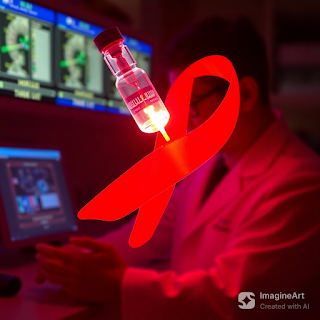Major progress in HIV vaccine research: new studies use germline-targeting and mRNA strategies to stimulate broadly neutralizing antibodies against HIV.
🧬 Scientists Make Major Progress Toward an Effective HIV Vaccine
Published: June 1, 2025
🌟 Introduction: A New Dawn in HIV Research
After decades of relentless pursuit, scientists have achieved a significant breakthrough in the quest for an effective HIV vaccine. Recent studies demonstrate that a series of vaccines can stimulate the immune system to produce powerful antibodies capable of neutralizing a wide range of HIV strains, including those notoriously difficult to target. IAVI+4News-Medical+4scripps.edu+4
🧪 The Science Behind the Breakthrough
🎯 Targeting Broadly Neutralizing Antibodies (bNAbs)
The cornerstone of this advancement lies in the induction of broadly neutralizing antibodies (bNAbs). These unique antibodies can neutralize multiple HIV-1 viral strains by targeting conserved regions of the virus that remain relatively unchanged despite mutations. Wikipedia+1arXiv+1
🧬 Germline-Targeting Vaccine Strategy
A novel approach, known as "germline targeting," has been employed to stimulate naive immune B cells to produce bNAbs. This strategy involves a stepwise vaccination process, where an initial priming dose is followed by distinct booster doses, guiding the immune system through stages of antibody development. ReutersIAVI
🌍 Global Trials and Collaborative Efforts
The promising results stem from two clinical trials conducted by an international team led by scientists at IAVI and Scripps Research. These trials included nearly 80 participants from North America and Africa, laying essential groundwork for a future HIV vaccine with global potential. IAVI
In one trial, a stepwise vaccination strategy demonstrated that administering a combination of priming and booster doses could further advance the immune response in humans. The second trial focused on the priming stage and showed that an initial vaccine dose could successfully activate the desired immune cells in African participants, supporting the use of this approach in regions most affected by HIV.IAVI
⚠️ Challenges on the Horizon
🩺 Adverse Reactions in mRNA Vaccine Trials
Despite the optimism, challenges remain. Moderna's mRNA-based HIV vaccine trials reported an unusually high rate (7-18%) of chronic hives and skin reactions, leading to a pause in trials for further investigation. These reactions are rare in other mRNA or HIV vaccines and seem tied to the combination of mRNA and HIV immunogens unique to Moderna's products. The Atlantic
💰 Funding Cuts Impacting Research Progress
Compounding the issue, the U.S. administration has significantly cut funding for HIV vaccine research, halting a $258 million program that supported pivotal institutions like Duke University, the Scripps Research Institute, and Moderna. Experts warn that this decision could delay HIV vaccine progress by a decade. The Daily Beast
🔭 Looking Ahead: The Path to an HIV Vaccine
Despite these hurdles, the scientific community remains steadfast in its commitment to developing an effective HIV vaccine. The recent advancements provide a solid foundation for future research, and with continued global collaboration and adequate funding, the goal of an HIV vaccine is within reach.
🏷️ Tags
#HIVVaccine #bNAbs #GermlineTargeting #GlobalHealth #MedicalResearch #mRNA #VaccineDevelopment #PublicHealth #ScienceInnovation
For more information on the latest HIV vaccine research, visit IAVI's official website.











Comments
Post a Comment